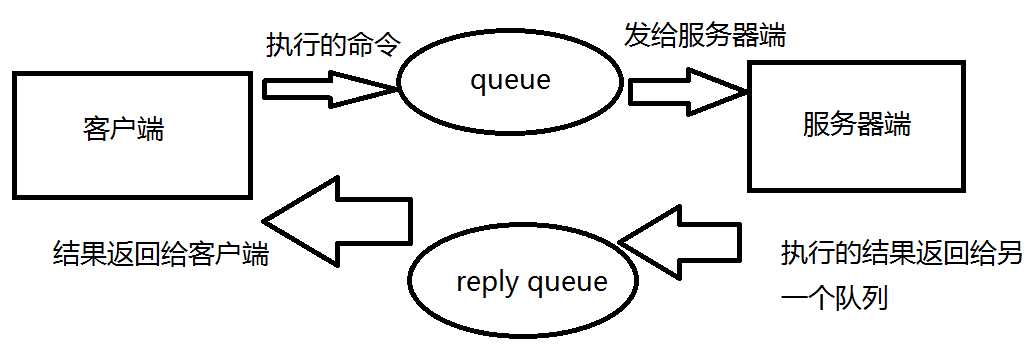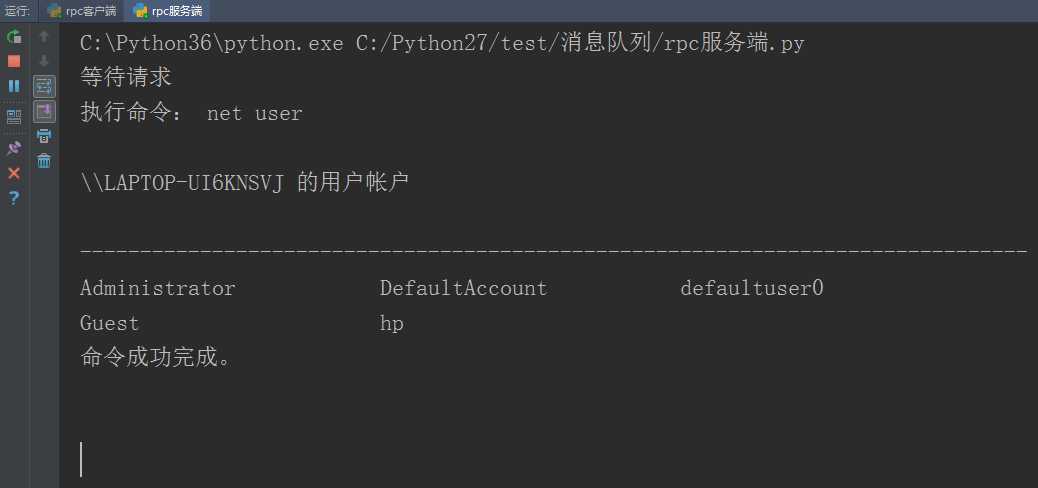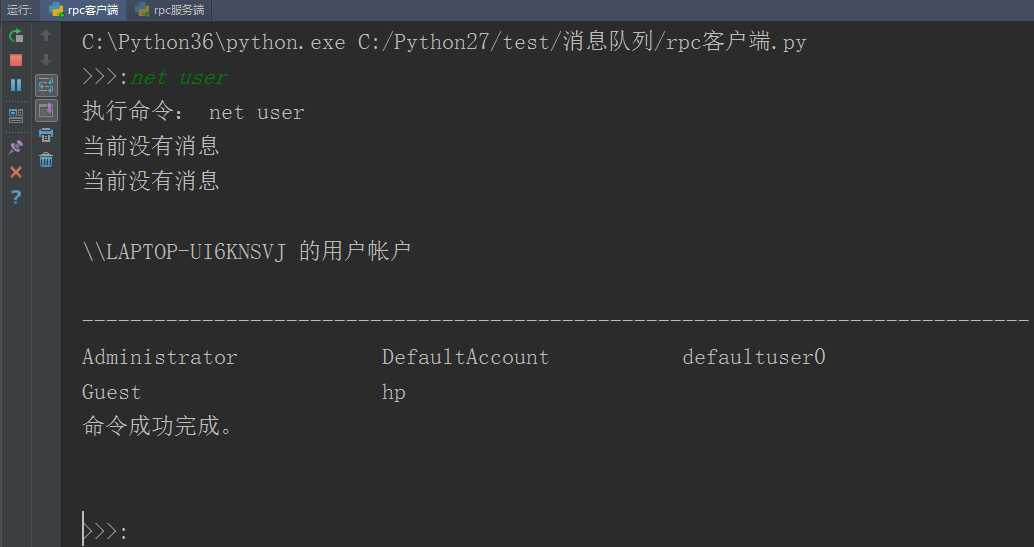客户端通过发送命令来调用服务端的某些服务,服务端把结果再返回给客户端
这样使得RabbitMQ的消息发送端和接收端都能发送消息

返回结果的时候需要指定另一个队列
服务器端
# -*- coding:utf-8 -*-
__author__ = "MuT6 Sch01aR"
import pika
import os
connection = pika.BlockingConnection(pika.ConnectionParameters(host=‘127.0.0.1‘))
channel = connection.channel()
channel.queue_declare(queue=‘rpc_q‘)
def cmd(n):
cmd_result = os.popen(n)
cmd_result = cmd_result.read()
return cmd_result
def on_request(ch, method, props, body):
body = body.decode()
print(‘执行命令:‘, body)
response = cmd(body)
print(response)
ch.basic_publish(exchange=‘‘,
routing_key=props.reply_to, # 把消息发送到用来返回消息的queue
properties=pika.BasicProperties(correlation_id=props.correlation_id),
body=str(response),
)
ch.basic_ack(delivery_tag=method.delivery_tag)
channel.basic_qos(prefetch_count=1)
channel.basic_consume(on_request, queue=‘rpc_q‘)
print(‘等待请求‘)
channel.start_consuming()
客户端
# -*- coding:utf-8 -*-
__author__ = "MuT6 Sch01aR"
import pika
import uuid
import time
class RpcClient(object):
def __init__(self):
self.connection = pika.BlockingConnection(pika.ConnectionParameters(host=‘127.0.0.1‘))
self.channel = self.connection.channel()
result = self.channel.queue_declare(exclusive=True)
self.callback_queue = result.method.queue # 生成随机的queue
self.channel.basic_consume(self.on_response, # 一收到消息就调用op_response方法
no_ack=True,
queue=self.callback_queue,
)
def on_response(self, ch, method, props, body):
if self.corr_id == props.correlation_id: # 判断服务端发送的uuid和客户端发送的uuid是否匹配
self.response = body
def call(self, n):
self.response = None
self.corr_id = str(uuid.uuid4())
self.channel.basic_publish(exchange=‘‘,
routing_key=‘rpc_q‘,
properties=pika.BasicProperties(
reply_to=self.callback_queue, # 把返回的消息发送到用来返回结果的queue
correlation_id=self.corr_id,
),
body=n,
)
while self.response is None:
self.connection.process_data_events() # 相当于非阻塞的start_consuming()
print(‘当前没有消息‘)
time.sleep(3)
return self.response
while True:
cmd = input(‘>>>:‘).strip()
print(‘执行命令:‘, cmd)
rpc = RpcClient()
response = rpc.call(cmd)
print(response.decode())
开启一个客户端和一个服务端

执行结果:
服务器端

客户端

